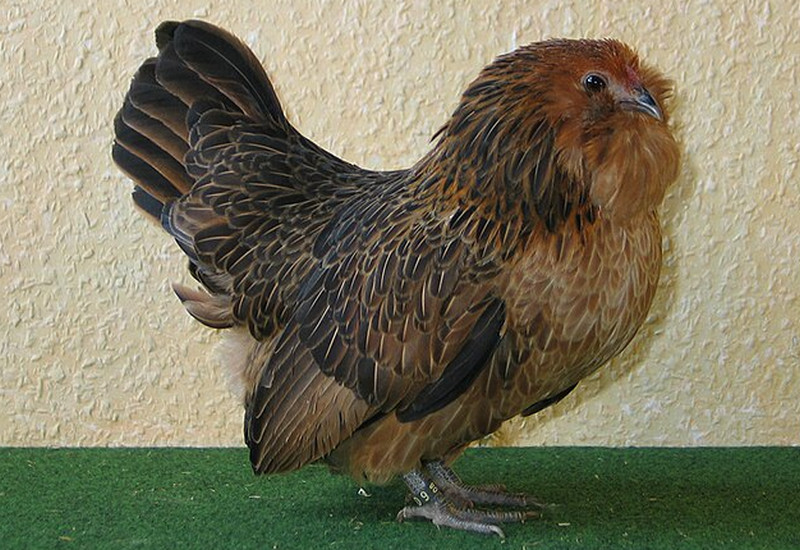The Barbu d’Anvers chicken is a charming addition to any poultry enthusiast’s flock. Known for its unique appearance, gentle demeanor, and long history, this tiny bird captivates people worldwide. Whether you’re a seasoned farmer or a backyard hobbyist, this guide will introduce you to the delightful world of the Barbu d’Anvers chicken. Let’s explore its origins, traits, and why it’s such a favorite in the poultry community.
The History of the Barbu d’Anvers Chicken
Hailing from Antwerp, Belgium, the Barbu d’Anvers chicken dates back to the 17th century. Its name, meaning “bearded of Antwerp,” highlights its most distinctive feature: a small beard of feathers beneath its beak. This breed likely originated from crossbreeding between local Belgian chickens and Dutch fowl, creating a bird prized for both its beauty and utility.
Initially bred as a reliable egg-layer, the Barbu d’Anvers gained popularity for its consistent production of small eggs. Farmers also valued the breed’s hardiness and adaptability. Over time, its ornamental qualities made it a favorite at poultry shows. Today, this breed continues to charm with its history and unique traits.
Physical Characteristics of the Barbu d’Anvers
The Barbu d’Anvers chicken stands out with its distinctive appearance. Let’s break down its key physical traits:
- Size and Build: Small and compact, with hens weighing around 0.5 pounds and roosters up to 0.875 pounds.
- Facial Features: A fluffy beard and muffs frame its face, giving it a unique look.
- Feather Colors: Varieties include Mille Fleur, Quail, Porcelain, Black, and White.
- Tail and Posture: Upright stance with a short, well-proportioned tail.
- Legs and Feet: Short legs and clean feet, often matching the bird’s plumage color.
Its small size and elegant plumage make it a showstopper in any flock, earning admiration in poultry exhibitions worldwide.

Behavior and Temperament
Barbu d’Anvers chickens are loved for their friendly and sociable personalities. Here’s what to expect:
- Gentle Nature: They’re calm and easy to handle, making them ideal for families.
- Sociable Birds: They enjoy human interaction and bond well with their flockmates.
- Active Foragers: These birds thrive in environments where they can scratch and explore.
- Quiet Companions: Their low noise levels suit urban or backyard settings.
- Adaptability: Their thick feathers help them endure colder climates with proper care.
This breed’s temperament makes it a delightful addition for beginners and experienced keepers alike.
Barbu d’Anvers Egg Production and Broodiness
Though primarily ornamental, Barbu d’Anvers chickens contribute to egg production. Here’s what you need to know:
- Egg Size: Small eggs, perfect for light cooking or baking.
- Laying Frequency: Around 2 to 3 eggs per week.
- Egg Color: Typically white or cream-colored.
- Broodiness: Hens often go broody and are excellent natural mothers.
If you’re interested in hatching chicks, this breed’s broodiness can be a bonus. However, breaking broodiness may be necessary to maintain egg production.
Uses and Benefits of Barbu d’Anvers Chickens
Despite their small size, Barbu d’Anvers chickens serve various purposes:
- Ornamental Appeal: Their stunning plumage and unique features make them popular in shows.
- Backyard Companions: Easy to care for, they’re a joy for small-scale keepers.
- Education: Their rich history helps teach about heritage breeds.
- Natural Incubators: Broody hens excel at hatching eggs.
- Therapeutic Pets: Their friendly nature offers comfort and relaxation.
While not prolific egg-layers, their charm more than compensates for any production limitations.
Caring for Your Barbu d’Anvers Chickens
Proper care ensures these birds thrive. Keep these tips in mind:
- Housing: Provide a clean, secure coop with enough space for roosting.
- Diet: Offer a balanced feed, supplemented with fresh vegetables and grains.
- Health Monitoring: Check for signs of illness, such as lethargy or feather loss.
- Social Interaction: Spend time with your chickens to strengthen trust.
- Protection: Guard against predators with secure fencing.
By meeting their needs, you’ll enjoy happy and healthy chickens.
Why Choose Barbu d’Anvers for Your Flock?
The Barbu d’Anvers chicken is a fantastic choice for poultry enthusiasts seeking beauty and personality. Its rich history, stunning appearance, and easygoing temperament make it a standout breed. Whether you want an ornamental bird, a natural egg incubator, or a friendly companion, this chicken fits the bill.
Add some Barbu d’Anvers chickens to your flock, and you’ll see why they’ve been beloved for centuries. These small birds bring big joy to poultry keepers everywhere.
See Also:
- Booted Bantam Chicken: A Petite Poultry Wonder
- Redcap Chicken: A Unique Heritage Poultry Breed
- What Is Nankin Bantam Chicken?
